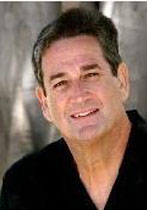By Rabbi Ben Kamin

ENCINITAS, California–As even the Supreme Court takes up the issue of same-sex marriage, and the issue finally appears to have captured the heart of humanity in every sense, some folks are again presuming the mantle of Dr. Martin Luther King in the name of something he actually never addressed.
If one reveres King, then it is important not to co-opt the facts of his stated values and beliefs. It is difficult to assert that the martyred civil rights leader, in his lifetime, would have endorsed same-sex marriage, let alone officiate at such a ceremony.
While it may be painful to accept, King did not speak out in favor of gay rights and he never in any instance put forward a moral agenda related to what is now both an urgent and noble social justice movement. On the other hand, neither did Moses: the Hebrew Scripture remains unfortunately afflicted with strong language that condemns homosexual acts as capital crimes. Just read Leviticus—and be mortified.
Nonetheless, Moses’s legacy is still associated with the creation of human rights and the world’s first freedom march. But people often mold figures like Moses or Jesus or Eleanor Roosevelt or Gandhi in the image of a contemporary cause or philosophy they wish to legitimatize.
The greatness of Martin Luther King Jr., a real person with flaws, contradictions, and a crippling fear for his own morality, transcends any singular issue that he advocated or neglected. He would not have opposed gay marriage because he thought that any man or woman was less than socially equivalent to another. He simply was boxed into his religious doctrine that marriage has to do with one man and one woman.
He was hardly alone among preachers in that conviction—just as he was cosmically alone in his courageous public stand against the Vietnam War during the last years of his brief life.
No hagiography of King can refute that, in his own lifetime, he was at heart, as he often declared, “a minister of the Gospel of Jesus Christ.” There is no evidence, written or otherwise, that King ruminated about homosexuality—except his occasionally expressed ambivalence about the gayness of his close adviser, Bayard Rustin. He relied upon and trusted Rustin but dismissively joked about Rustin’s lust “for other brothers.”
King also did not put up a fight when Congressman Adam Clayton Powell of Harlem effectively ran Rustin out of the Southern Christian Leadership Conference exactly because of the homosexuality issue.
As MLK’s niece Alveda King stated publicly several years ago: “Would Martin Luther King be a champion of LGBTQ rights? No, he would champion the word of God.”
King may have been wrong about the stand he effectively took, in public and private, about gay rights. Perhaps he was too busy and focused on getting African Americans the right to shop in the same department stores as whites in Atlanta, to fair housing in Chicago, to send their kids to the same schools in Jackson, Miss., and to access the same labor unions in Memphis. Maybe he was just trying to convert the US Constitution into an ethical transcript for American life.
In the end, when people successfully advocate for same sex marriage in any state, when they triumph in their campaign to end the Boy Scouts’ unseemly ban against homosexual youngsters participating in the program, they don’t do MLK any justice by asserting that “Dr. King would have supported us.”
But they do every one justice when they realize how Dr. King inspired us.
*
Rabbi Kamin is a freelance writer in Encinitas, California. He may be contacted at ben.kamin@sdjewishworld.com
Clarence B Jones writes: “The more accurate and HISTORICALLY PRECISE statement of the issue is NOT whether he would have done so during 1956 to April 4,1968, but whether he would do so in 2013 at the age of 85?”